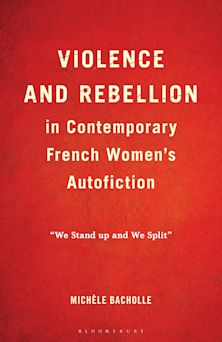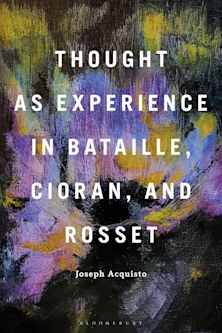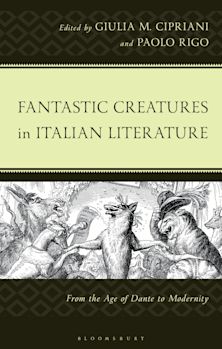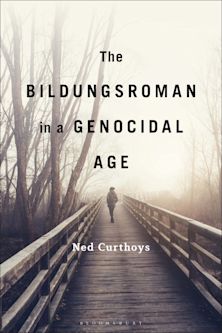Kafka's Creatures
Animals, Hybrids, and Other Fantastic Beings
Kafka's Creatures
Animals, Hybrids, and Other Fantastic Beings
This product is usually dispatched within 1 week
- Delivery and returns info
-
Free CA delivery on orders $40 or over
Description
There are few literary authors in whose work animals and other creatures play as prominent a role as they do in Franz Kafka's. Exploring multiple dimensions of Kafka's incorporation of nonhuman creatures into his writing, this volume is the first collection in English of essays devoted to illuminating this important and ubiquitous dimension of his work. The chapters here are written by an array of international scholars from various fields, and represent a diversity of interpretive approaches. In the course of exploring the roles played by nonhuman animals and other creatures in Kafka's writing, they help make sense of the literary and philosophical significance of his preoccupation with animals, and make clear that careful investigation of those creatures illuminates his core concerns: the nature of power; the inescapability of history and guilt; the dangers, promise, and strangeness of the alienation endemic to modern life; the human propensity for cruelty and oppression; the limits and conditions of humanity and the risks of dehumanization; the nature of authenticity; family life; Jewishness; and the nature of language and art. Thus the essays in this volume enrich our understanding of Kafka's work as a whole. Especially striking is the extent to which the articles collected here bring into focus the ways in which Kafka anticipated many of the recent developments in contemporary thinking about nonhuman animals.
Table of Contents
Chapter 2. Kafka's Hybrids: Thinking Animals and Mirrored Humans
Chapter 3. "Czechs, Jews and Dogs Not Allowed": Identity, Boundary and Moral Stance in Kafka's "A Crossbreed" and "Jackals and Arabs"
Chapter 4. De-allegorizing Kafka's Ape: Two Animalistic Contexts
Chapter 5. Agents of the Forgotten: Animals as the Vehicles of Shame in Kafka
Chapter 6. The Difficult Task of Being Real: Odradek, the Kittenlamb, and the Historical Individual
Chapter 7. Consolation in Your Neighbour's Fur: On Kafka's Animal Parables
Chapter 8. Crowds, Animals, and Aesthetic Language in Kafka's "Josephine"
Chapter 9. Performative Emotion in Kafka's "Josephine, the Singer; or, the Mouse Folk" and Freud's "The Creative Writer and Daydreamer"
Chapter 10. The Power of the Look: Franz Kafka's "The Cares of a Family Man"
Chapter 11. Four Hands Good, Two Hands Bad
Chapter 12. Who identified the animal? The rhetoric behind the hybrid in Kafka's "The Metamorphosis" and Amerika (The man who disappeared)
Ch
Product details
| Published | Jun 22 2010 |
|---|---|
| Format | Hardback |
| Edition | 1st |
| Extent | 306 |
| ISBN | 9780739143940 |
| Imprint | Lexington Books |
| Dimensions | 246 x 166 mm |
| Publisher | Bloomsbury Publishing |
Reviews

ONLINE RESOURCES
Bloomsbury Collections
This book is available on Bloomsbury Collections where your library has access.



































